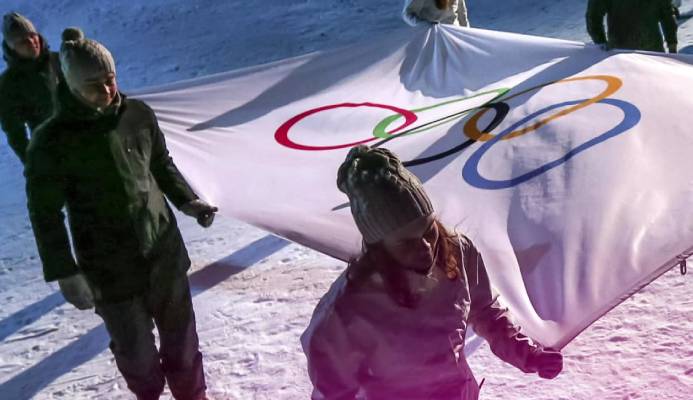New sports and plenty of innovation: Here's a little taster for the third edition of the Winter YOG with Olympic Channel presenting 300 hours of coverage
Coming after the success of Buenos Aires 2018, the countdown is on towards the third Winter Youth Olympic Games at Lausanne 2020.
The home of the International Olympic Committee will stage the Games from 9-22 January 2020 with 1,880 young elite athletes from around the world taking part.
There will be new sports and a new programme featuring an equal number of male and female athletes as was the case in Buenos Aires.
Here we take a look at what's in store for Lausanne 2020.
Olympic Channel will stream 300 hours of action from the 13 days of competition in Lausanne with a dedicated Winter YOG channel available on olympicchannel.com, YouTube and connected devices such as Amazon Fire, Apple TV, Android TV and Roku.
There will be an action-packed daily live show featuring news, highlights, trending stories and interviews in a fun and interactive format streamed on Facebook, Twitter and olympicchannel.com, plus a daily Olympic Channel Podcast featuring insightful interviews with personalities from across the Olympic world.
Fans can also follow Olympic Channel's coverage on Facebook, Twitter, Instagram and YouTube to learn more about the event and interact with some of the athletes involved, and keep right up to date with schedules, results and medals tables on olympicchannel.com.
Editor in Chief Mary Byrne said, "The Winter Youth Olympic Games provide a fun format for young athletes to experience the Olympic spirit as they work toward achieving their goals and dreams.
"The Olympic Channel’s coverage of Lausanne 2020 ensures a worldwide audience for the YOG and will kick off an important year for our team as our daily coverage of Olympic sports and athletes continues to build toward next summer’s Olympic Games Tokyo 2020."
Unlike Buenos Aires 2018, Lausanne 2020's venues will be spread out over much more than just one city.
Lausanne will host the Youth Olympic village, medal ceremonies and the ice sports of ice hockey, short track speed skating and figure skating.
Alpine skiing, ski mountaineering, freestyle skiing and snowboarding will take place in they Vaud Alps, while curling will take place in Champery.
The Nordic skiing events will take place in the Vallee de Joux, and ski jumping, biathlon and Nordic combined will be hosted at the Tuffes site in neighbouring France.
Bobsleigh, skeleton, luge and speed skating will take place in St. Moritz.
Gender equality
Lausanne 2020 will pick up where Buenos Aires 2018 left off, with a completely gender equal event.
This means equal numbers of men and women will compete for the medals... and there will be some exciting new disciplines to reflect the increased female participation (see below!).
Ski mountaineering is the most radical new sport to be approved for the Lausanne 2020 programme.
The lung-busting new addition involves scaling mountains on skis (or carrying them depending on the severity of the ascent), before skiing back down.
Some fresh, new disciplines have also been introduced to reflect innovation and gender equality.
They include mixed-nationality 3x3 ice hockey, a women's doubles competition in luge and a women's Nordic combined ski event.
"The confirmed event programme means full gender balance the first time at a Winter Olympic event, with the highest number of women’s events and women ever competing at the Winter YOG," said an IOC statement.
A key part of Lausanne's plan is ensuring that Switzerland will benefit from hosting the event after it has finished.
The VORTEX, which was constructed to accommodate the Olympic Village, will be turned into student accommodation at the Games' conclusion.
Approximately 1,200 university students and academic guests will benefit from this extra housing.
The legacy will also provide a much-needed boost to sports infrastructure in French-speaking Switzerland.
The Espace Malley venue is being redeveloped with a new Olympic swimming pool, 9,700 capacity ice rink, table tennis and fencing facilities - all of which will be accessible to local athletes free of charge for 20 years.
In addition to new facilities, sports management training and a new regional short track speed skating programme will also be on offer.

